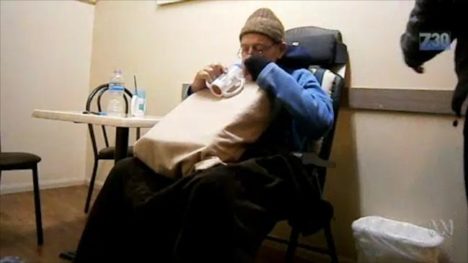ABC accuses The Australian of failing to follow ‘accepted ethical practices’ in story critical of 730 euthanasia report
The ABC has rejected The Australian’s criticism of its 7.30 program’s story on voluntary euthanasia, slamming News Corp’s national broadsheet for its failure to approach the ABC for comment “as is accepted ethical practice in journalism”.
7.30 told the story of Max Bromson, a sufferer of bone cancer, who died in July 2014 from a fatal self-administered dose of Nembutal.
Former prime minister Tony Abbott criticised the ABC, telling The Australian the public broadcaster was engaged in “death voyeurism”.



Isn’t that a hypocritical case of the pot calling kettle black!
ABC says; “The Australian failed to approach the ABC for comment, as is accepted ethical practice in journalism.”
If the ABC feels so strongly about this why didn’t they approach the immigration minister for comment as part of thier one-sided “The Forgotton Children” program on Four Corners.
It’s hard to accept that the ABC demands it whem they recieve criticism, but are happy to forget this ‘ethical practice’ when they want to push thier agenda.
ABC is quickly losing credibility and authority as a news/current affairs source.
The ABC’s statement on the matter: “Four Corners requested an interview with the Immigration Minister, Peter Dutton. Mr Dutton requested that any interview be live, which is not part of the Four Corners format. The Minister was offered a live interview on the episode of Lateline immediately following the program’s airing and also on AM the next morning. He declined both”
Curse you Tom. Muddying the waters with the facts.